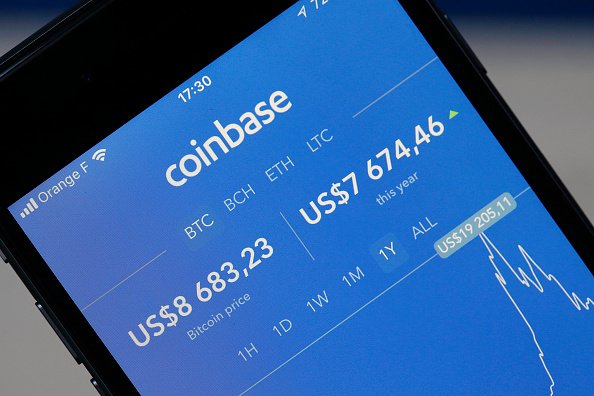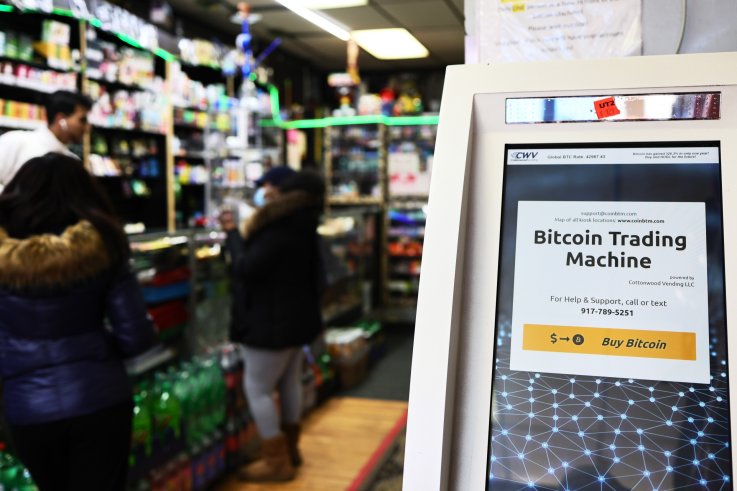Institutions and major companies appear to be taking advantage of Bitcoin‘s recent price dip by increasing their holdings, suggesting confidence in the future value of the cryptocurrency.
This could lead to higher prices and greater stability in the Bitcoin market, but analysts say it’s unlikely to force individual investors out of the market, as long as fractional ownership of the cryptocurrency is available.
“There is a strict limit of 21 million Bitcoin that will ever be available,” Jason Deane, Bitcoin analyst at Quantum Economics in London, told Newsweek.
“As more institutions scramble to buy and hold as much as they can, the laws of supply and demand mean that dollar price per unit will inevitably rise,” he said. “However, Bitcoin will always remain accessible to everyone by design and in practice. It’s just that the average Joe is likely to hold and use ‘Satoshi’ —the 100,000,000 units that make up a whole Bitcoin—rather than entire Bitcoin.”
Bitcoin plunged from $58,356 on Sunday, a record high, to as low as $45,501 on Tuesday. Despite recent volatility, Bitcoin is up about 70% year-to-date and has soared about 400% in the last year.
In mid-day trading Thursday, Bitcoin changed hands at $49,912.46. The high in the last 24 hours is $52,076.32, CoinDesk reported.
Deane said the buy-and-hold strategy adopted by major companies and institutions has the potential to reduce Bitcoin’s future price volatility. But that’s counterpointed by the now seemingly unlikely possibility that a large investor would dump a significant number of coins causing a sharp price drop.
However, Bitcoin’s increasing acceptance on Wall Street and its rising price may lead some retail investors to consider alt coins such as Ethereum, XPR, Stellar or Cardano that could provide larger percentage gains.

Chesnot
“Alt coins are generally considered riskier since many projects are in their infancy and are tracking issues that are difficult with applications whose outcomes are far from certain,” Deane said.
“With that risk comes potentially greater reward as has been proven in the short history of crypto assets globally,” he said. “Rising prices are often read as increasing confidence in the sector as a whole and not just Bitcoin.”
Major Companies Buy Bitcoin
MicroStrategy said it had increased its holdings in Bitcoin as part of its long-term investment strategy. Square also increased its holdings.
One analyst estimated that Elon Musk‘s Bitcoin investment has returned about $1 billion and is on track to produce more profit for the company than it made in all of 2020 selling cars.

BRITTA PEDERSEN/POOL/AFP/Getty
On Wall Street, Grayscale’s Bitcoin Trust allows investors to bet on cryptocurrency without buying the coins themselves. The Chicago Mercantile Exchange now provides pricing information on Bitcoin, reflecting growing acceptance of the cryptocurrency.
Bank of New York Mellon announced that it will begin holding and transferring Bitcoin for its asset-management clients, underscoring the growing acceptance of cryptocurrency on Wall Street.
Bitcoin’s Future in Commercial Transactions
The buy-and-hold strategy by major investors won’t undercut efforts of Mastercard, PayPal and others to expand Bitcoin’s use in commerce, Deane said.
“Bitcoin was designed to be a currency first and foremost,” he said. “While it’s true that the ‘store of value’ element of Bitcoin is probably the dominant narrative now, projects by the payment networks will ensure that the payment capabilities of Bitcoin will be properly enabled in due course, effectively creating an instantly spendable gold.”
Deane said Bitcoin is an unprecedented currency.
“The human race has never had a monetary system with this much versatility before,” he said.

The growing importance of major investors in the cryptocurrency market is unlikely to damage Bitcoin exchanges pegged to retail investors, Deane said.
“While the amounts might be smaller, the availability of Bitcoin should, in theory, always be dictated by supply and demand,” he said.
Mixed Inflation Signals
Many investors are betting inflation is on the way, a forecast that may influence the price of Bitcoin because many see it as a hedge against the declining value of the dollar.
Treasury yields are climbing, but stock-pickers are moving into companies such as airlines and leisure travel that are likely to benefit from an economic rebound as the COVID-19 pandemic abates. In early trading Thursday, Delta, Carnival and Hilton rose.
Some believe the $1.9 trillion relief package now being debated in Congress will provide only short-term benefit and therefore won’t stoke inflation long-term.
The difference between yields on ordinary U.S. Treasury bonds and the return on inflation-protected treasuries may forecast “a spike in inflation that then falls away,” The Wall Street Journal reported.
Oxford Economics doesn’t expect inflation to spike in the European Union.

REUTERS/Ralph Orlowski
“With January’s detailed inflation report showing that transitory factors caused much of the month’s surprisingly large rise, a partial retracement is possible in February,” the U.K.-based global economic forecaster said in a research report.
“In addition, we don’t find signs of a big jump in underlying inflation,” the report said. “And while we still expect inflation to recover strongly this year from 2020’s extreme lows, fueling the reflation will mostly be base effects and higher energy prices. We continue to think the European Central Bank will look through this.”
